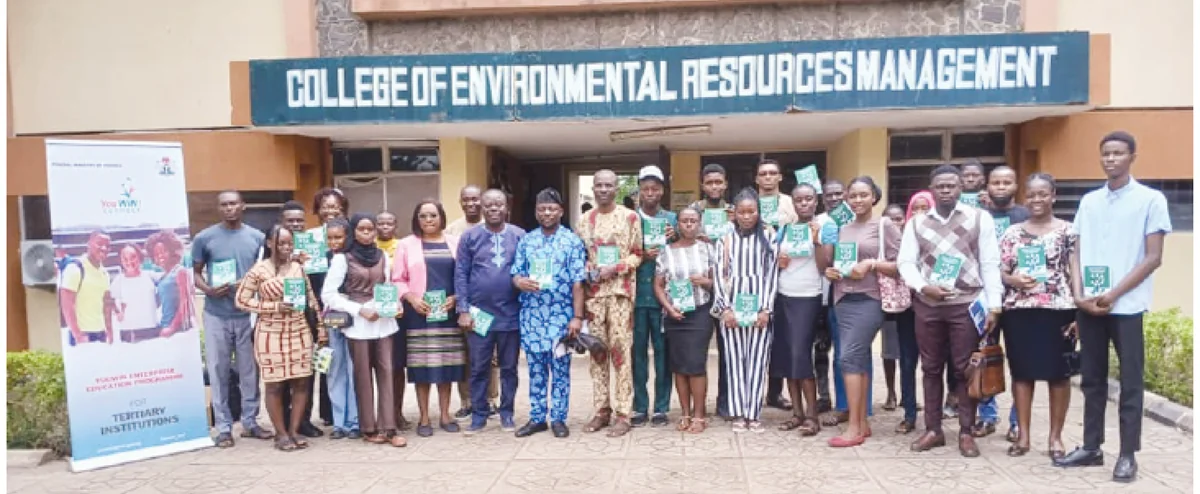By Tribune Online
Copyright tribuneonlineng

By: Precious Adebayo
THE Dean of Student Affairs at the Federal University of Agriculture, Abeokuta (FUNAAB), Professor Festus Adeosun, has urged students to go beyond academic certificates and embrace entrepreneurship as a pathway to self-reliance and national development.
Prof. Adeosun, a former Director of the Centre for Entrepreneurial Studies (CENTS), gave the charge during the YouWin Enterprise Education programme for tertiary institutions, held at the College of Environmental Resources Management (COLERM) Auditorium.
He observed that while a university degree remained valuable, the knowledge, skills, and experiences gained during campus life were the true determinants of future success.
“The current realities of youth unemployment in Nigeria demand creativity, resilience, and innovation. Students must look beyond certificates and embrace entrepreneurial opportunities that would position them as job creators rather than job seekers,” Adeosun stated.
Earlier, the Vice Chancellor, Prof. Babatunde Kehinde, reaffirmed FUNAAB’s commitment to nurturing students beyond academics, stressing that the institution was determined to prepare them for self-reliance in today’s competitive economy.
He commended the choice of FUNAAB as host of the programme, describing it as a timely platform to empower students with practical entrepreneurial skills.
ALSO READ: What I found out about Boko Haram — Obasanjo
Giving an insight into the programme, a representative of the Federal Ministry of Finance, Mr Lampo Ibrahim, explained that YouWin Connect was a youth-focused initiative designed to support small businesses and foster entrepreneurship nationwide.
He noted that the scheme, which also extends to National Youth Service Corps (NYSC) camps and other tertiary institutions, was created to provide Nigerian youths with access to funding and business development opportunities.
According to him, the core aim of YouWin Connect is to inspire young people to develop business ideas, grow them into sustainable enterprises, and reduce dependence on formal employment. He advised students to take advantage of the initiative and build ventures that would secure their future and contribute to national economic growth.
Highlighting practical pathways to business funding, Ibrahim identified four major sources available to aspiring entrepreneurs as friends and family, non-governmental organisations (NGOs), government agencies, and the private sector.
He underscored the role of NGOs in complementing the government’s efforts to reduce unemployment and urged students to uphold integrity and accountability in the use of funds secured through such programmes.
Referencing the Federal Government’s publication, Successful Nigerian Entrepreneurs, Ibrahim noted that financial struggles were often not due to lack of formal education but poor financial literacy. He, therefore, encouraged students to embrace entrepreneurial training and prudent financial management as essential life skills.